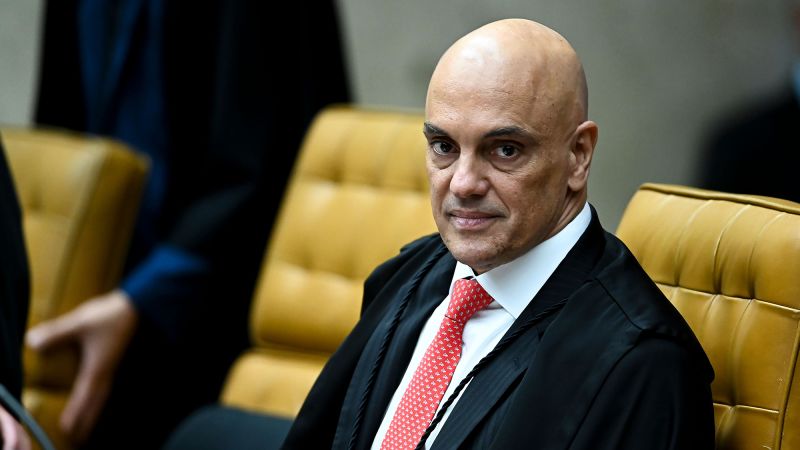A Brazilian Supreme Court justice has ordered the suspension of Elon Musk’s social media platform X in Brazil after Musk refused to name a legal representative in the country. The feud between the two escalated due to disagreements over free speech, far-right accounts, and misinformation. Justice Alexandre de Moraes warned Musk that X could be blocked if he didn’t comply with the order to name a representative within 24 hours. Musk accused de Moraes of destroying free speech and claimed that the Brazilian regime is afraid of people learning the truth.
Brazil is an important market for X, with around 40 million Brazilians accessing the platform at least once a month. X had anticipated the suspension by de Moraes, citing his illegal orders to censor political opponents. The platform has faced opposition from de Moraes over its reluctance to block users, including lawmakers associated with former President Jair Bolsonaro’s party. Musk, a self-proclaimed free speech advocate, has criticized de Moraes’ actions as censorship and has characterized the justice as a dictator and tyrant.
De Moraes’ defenders argue that his actions are legal and supported by the court, serving to protect democracy during a critical time. His order to suspend X is based on Brazilian law requiring foreign companies to have representation in the country for legal notification purposes. The standoff between X and de Moraes has been widely publicized, and compliance with legal orders shouldn’t be complicated. As a result, X may be offline in as little as 12 hours after receiving instructions from de Moraes.
The conflict between X and de Moraes highlights the ongoing tension between tech companies and legal regulators over issues such as free speech and censorship. Musk’s accusations of censorship and de Moraes’ defense of democracy reflect the complexities of navigating the digital landscape in a global context. The suspension of X in Brazil raises questions about the role of social media platforms in national politics and the extent to which they must comply with legal requirements in different jurisdictions. The impact of this suspension on X’s operations and future interactions with Brazilian authorities remains to be seen.
The situation involving X in Brazil underscores the challenges faced by tech companies operating in multiple countries with varying legal frameworks and political landscapes. Musk’s resistance to compliance with de Moraes’ order reflects broader debates surrounding data privacy, free speech, and governmental control of online platforms. As the story continues to develop, it will be important to monitor the implications of the suspension on X’s user base, revenue streams, and overall reputation. The outcome of this standoff may have far-reaching consequences for the tech industry and digital rights advocacy globally.


